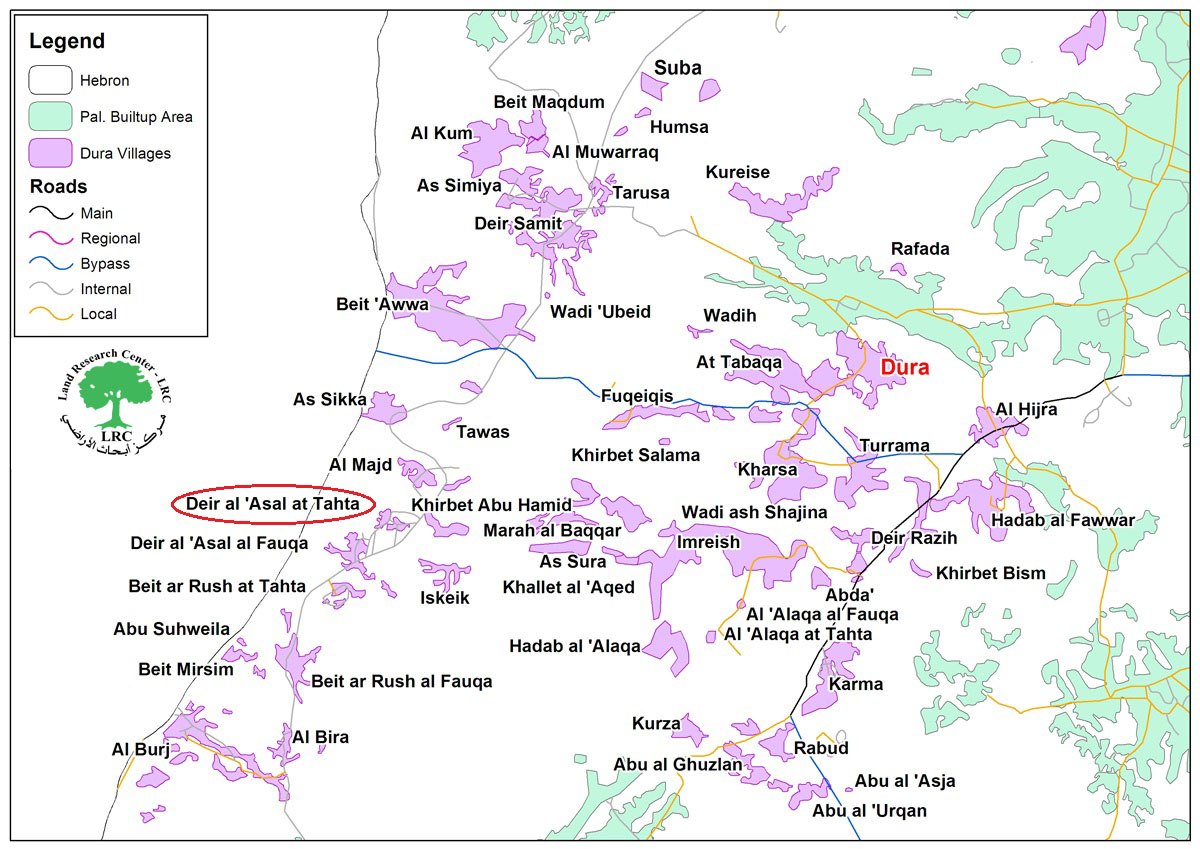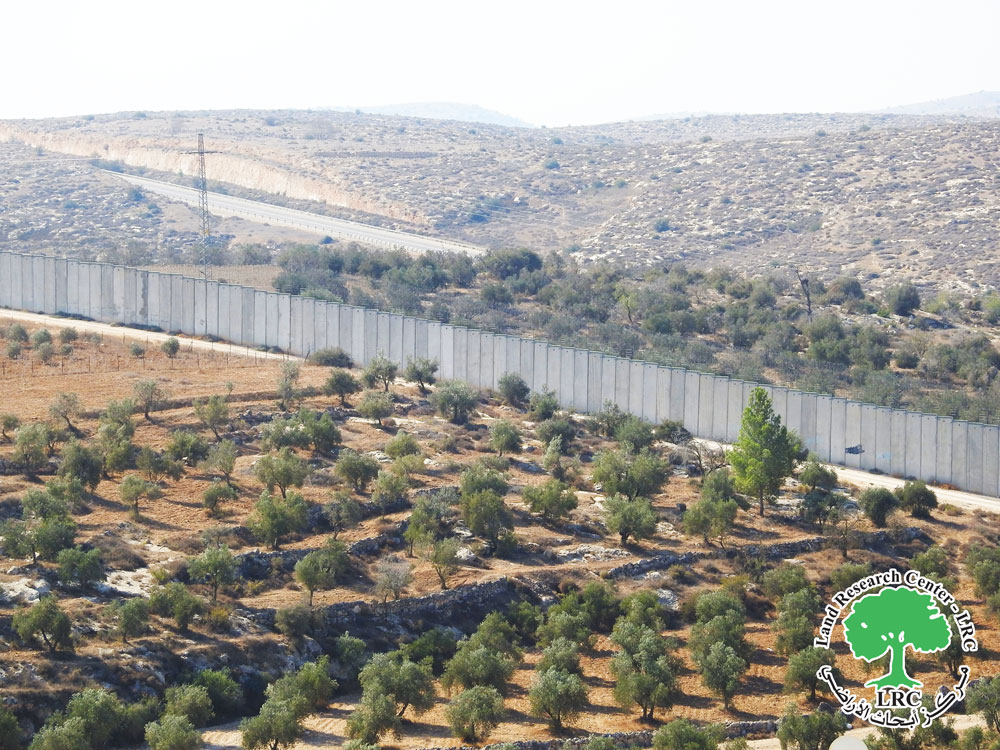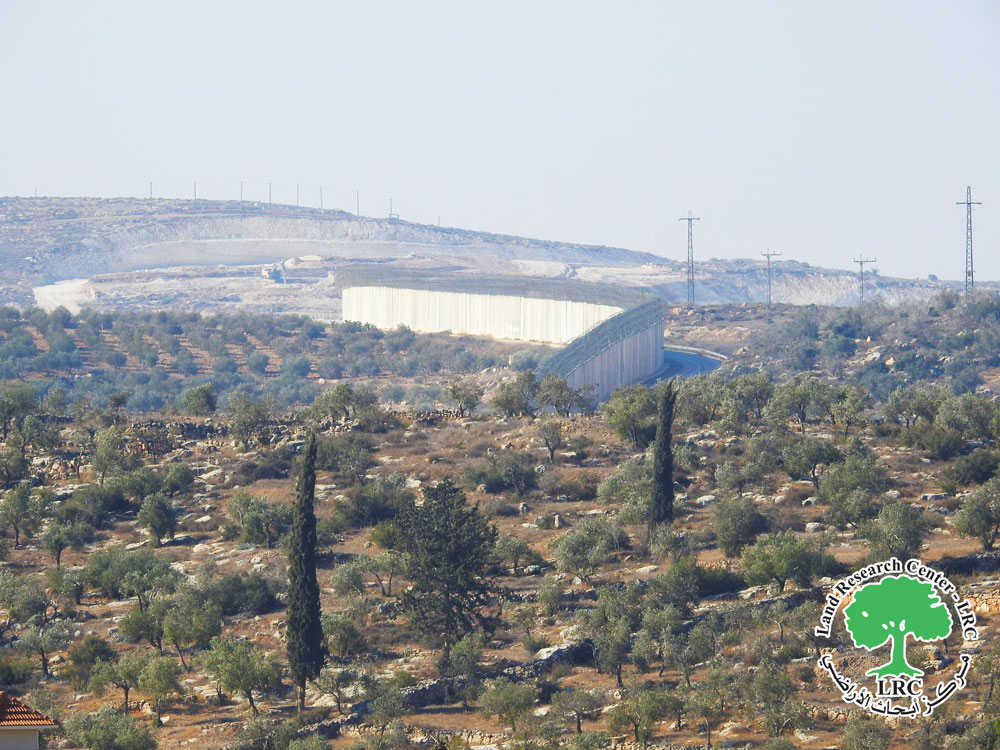The Israeli Army Prevents Farmers from Harvesting Olives in Deir Al-Asal Al-Tahta/ West of Hebron
Violation: Preventing farmers from harvesting olives.
Date of Violation: November 1, 2024.
Location: Deir Al-Asal Al-Tahta – Dura Town / Hebron Governorate.
Perpetrator: Israeli Army.
Affected Party: Farmers from the Nasser family.
Description:
The Israeli Army prevented members of the Nasser family, residing in Deir Al-Asal Al-Tahta, west of Dura town in Hebron Governorate, from accessing their lands to harvest olives and expelled them from the area.
On the morning of Friday, November 1, 2024, several family members headed to the (Wadi Al-Ajjal) area west of the village to harvest olives. Upon reaching their lands at around 7:00 AM, they were surprised by the arrival of an Israeli military vehicle, which ordered them to leave the site, citing its proximity to the separation wall. The soldiers pursued the farmers for approximately 500 meters east of the wall.
Walid Khalil Nasser, a member of the Deir Al-Asal Al-Tahta village council and one of the affected farmers, stated that his relatives attempted to return to harvest their olives. However, the Israeli Army returned to the site, fired shots into the air, and chased all the farmers in the area. One farmer was arrested and taken to a military watchtower near the town of Al-Awja, where he was detained for about five hours before being released. The farmer was warned not to return to the olive-planted lands without a permit and was instructed to inform his family members of the same.
A member of the village council indicated that the area of land where the Israeli authorities prevented work is estimated at over 100 dunums, planted with aged, fruit-bearing olive trees belonging to the Nasser family (descendants of Muhammad). The separation wall extends near these lands, almost touching the edges of the fields, with some areas as close as 20 meters away.
The ownership of these lands is attributed to:
- The heirs of the late Mahmoud Abdullah Nasser, including (Ali, Abdullah, and Muhammad).
- The heirs of the late Muhammad Abdullah Nasser, including( Yousef, Ibrahim, and Ahed).
Approximately 100 people, including around 40 children, benefit from these lands as part of the extended family of heirs.
The council member noted that these farmers have suffered losses due to delays in the olive harvest. The nature of the olives and the region's climate requires timely harvesting. The delay imposed by the Israeli authorities will negatively affect the quality and quantity of the produced olive oil. Furthermore, some of the olives have ripened and fallen from the trees. These restrictions and obstructions caused significant harm to the farmers, reducing their yields of olives and oil.
It is worth noting that Deir Al-Asal Al-Tahta is one of the frontline villages west of Dura town, with a population of about 1,000 residents, most of whom rely on agriculture for their livelihood. The village is bordered to the west by the separation wall, which encroached on its lands around 2005. Originally a metal fence, the wall was replaced about seven years ago with a towering cement structure.
مشروع: حماية الحقوق البيئية الفلسطينية في مناطق "ج" SPERAC V - FCDO
Disclaimer: The views and opinions expressed in this report are those of Land Research Center and do not necessarily reflect the views or positions of the project donor; the Norwegian Refugee Council.
إخلاء المسؤولية: الآراء ووجهات النظر الواردة في هذا التقرير هي آراء ووجهات نظر مركز أبحاث الأراضي ولا تعكس بالضرورة وجهات نظر أو مواقف الجهة المانحة للمشروع؛ المجلس النرويجي. للاجئين



